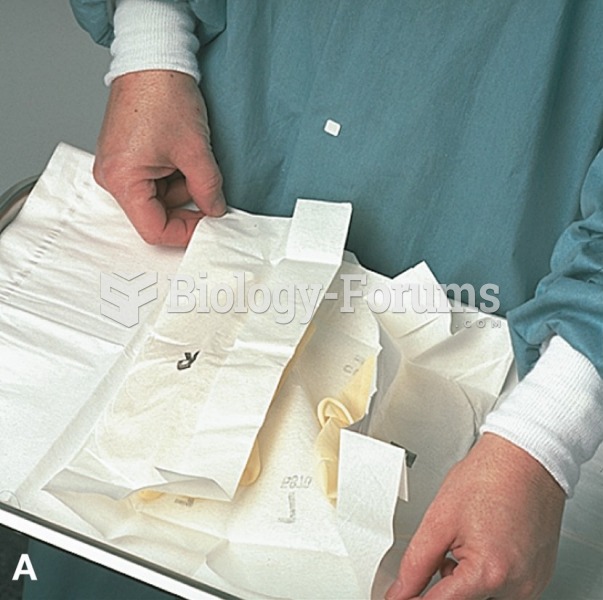|
|
|
In Eastern Europe and Russia, interferon is administered intranasally in varied doses for the common cold and influenza. It is claimed that this treatment can lower the risk of infection by as much as 60–70%.
Approximately 500,000 babies are born each year in the United States to teenage mothers.
GI conditions that will keep you out of the U.S. armed services include ulcers, varices, fistulas, esophagitis, gastritis, congenital abnormalities, inflammatory bowel disease, enteritis, colitis, proctitis, duodenal diverticula, malabsorption syndromes, hepatitis, cirrhosis, cysts, abscesses, pancreatitis, polyps, certain hemorrhoids, splenomegaly, hernias, recent abdominal surgery, GI bypass or stomach stapling, and artificial GI openings.
The immune system needs 9.5 hours of sleep in total darkness to recharge completely.
People who have myopia, or nearsightedness, are not able to see objects at a distance but only up close. It occurs when the cornea is either curved too steeply, the eye is too long, or both. This condition is progressive and worsens with time. More than 100 million people in the United States are nearsighted, but only 20% of those are born with the condition. Diet, eye exercise, drug therapy, and corrective lenses can all help manage nearsightedness.
 Older adults may grieve intensely over the loss of a person or situation that has been a part of the
Older adults may grieve intensely over the loss of a person or situation that has been a part of the
 Blocked at every turn by congressional Republicans who hated him, President Obama turned to techniqu
Blocked at every turn by congressional Republicans who hated him, President Obama turned to techniqu





